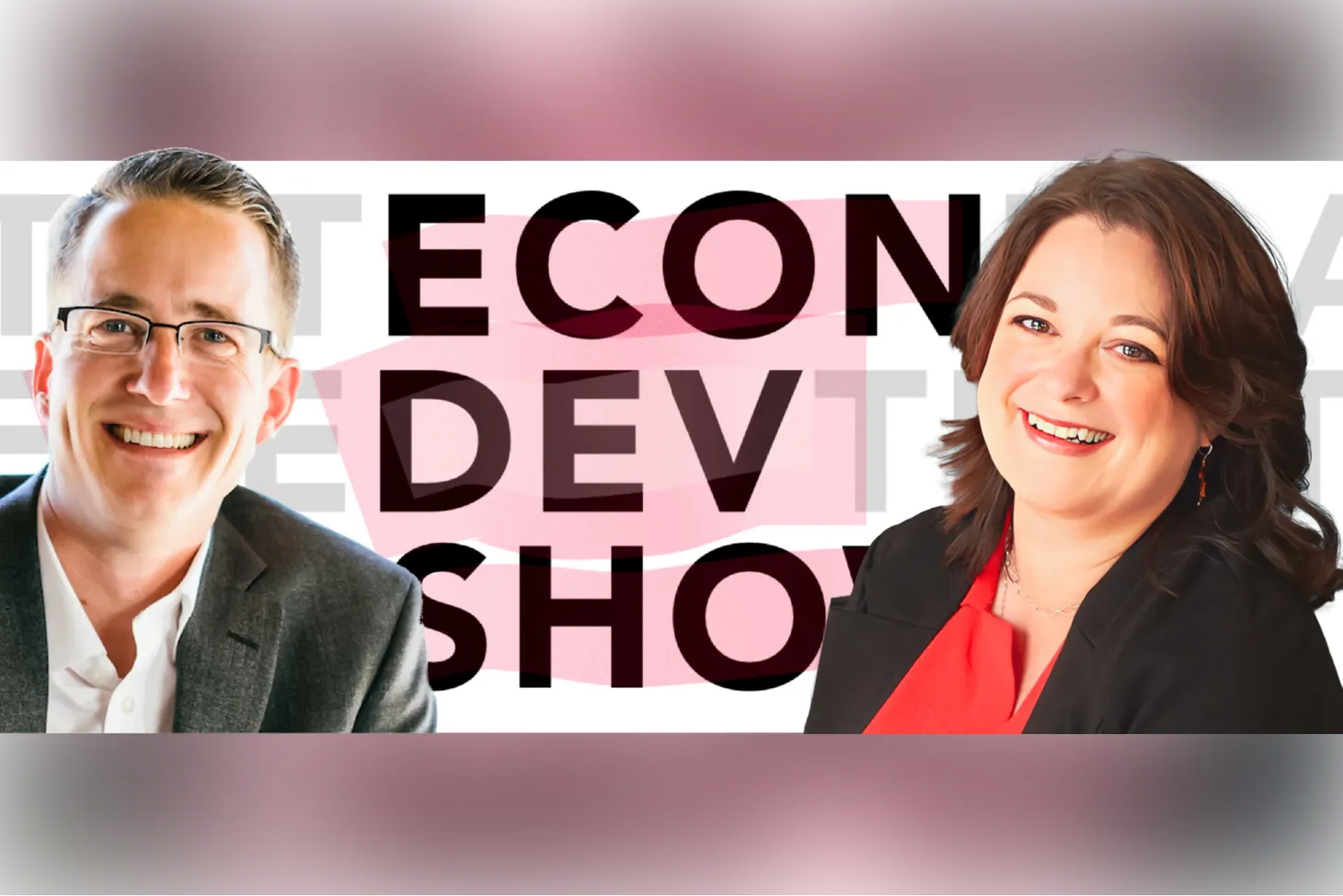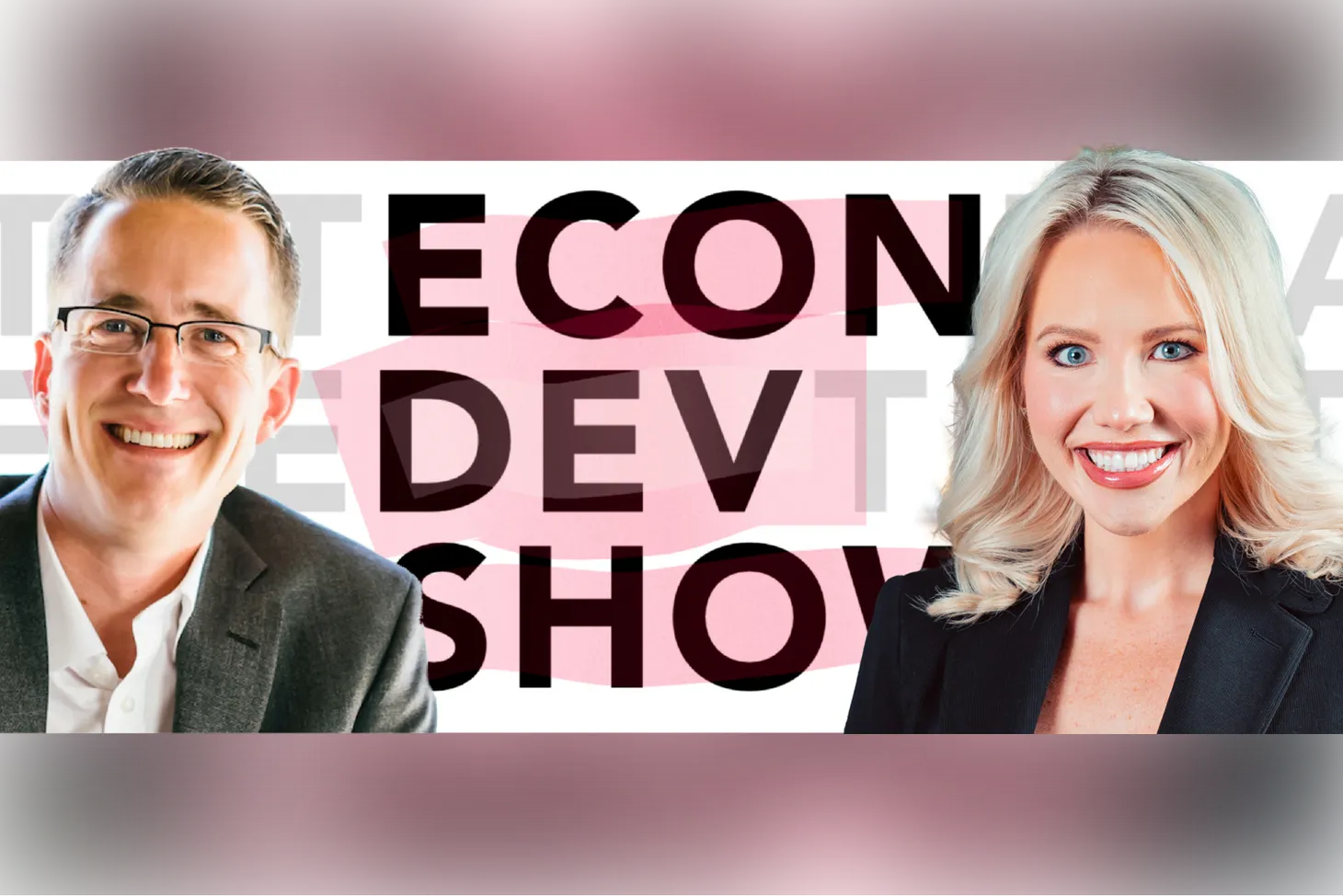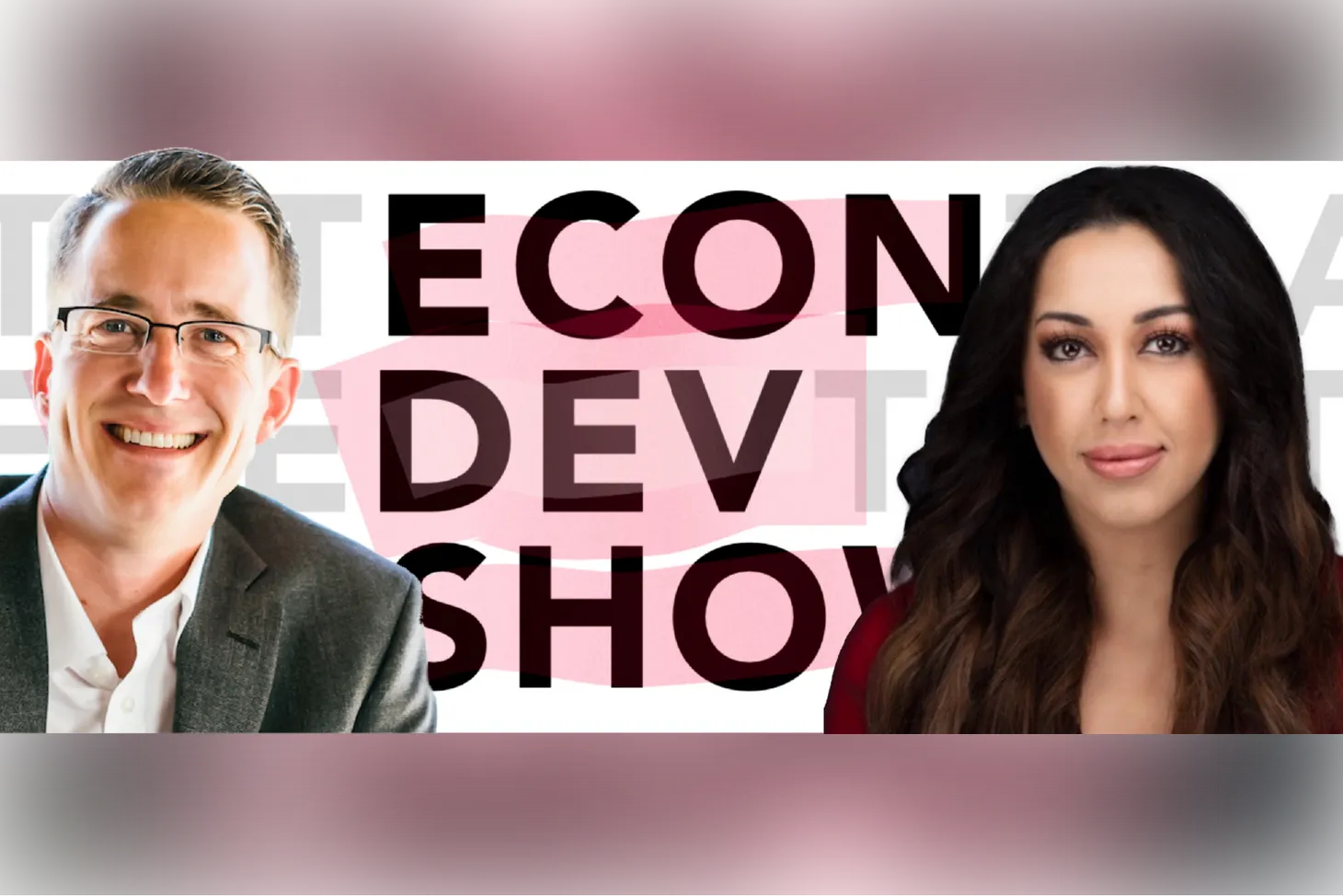Podcast Transcript #107: Meet Joe Collins - The First Subscriber to the Econ Dev Show
Prefer to read?
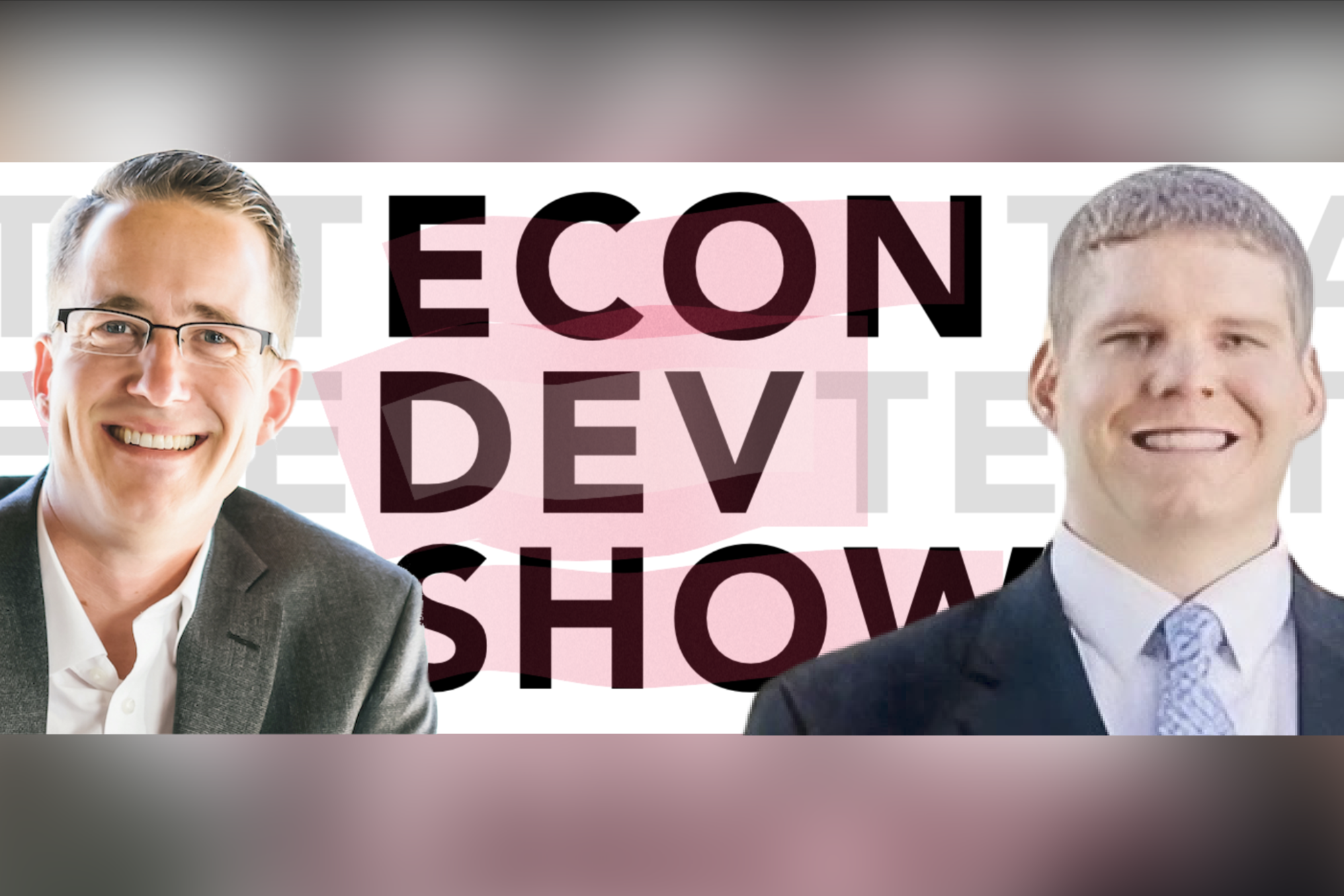
Table of Contents
Dane Carlson: Our episode today is brought to you by Kathode Ray Media, a full service marketing agency that connects government organizations to their communities. Contact them to learn more or ask for a free no obligation consultation.
Prefer to listen? Here's the audio podcast.
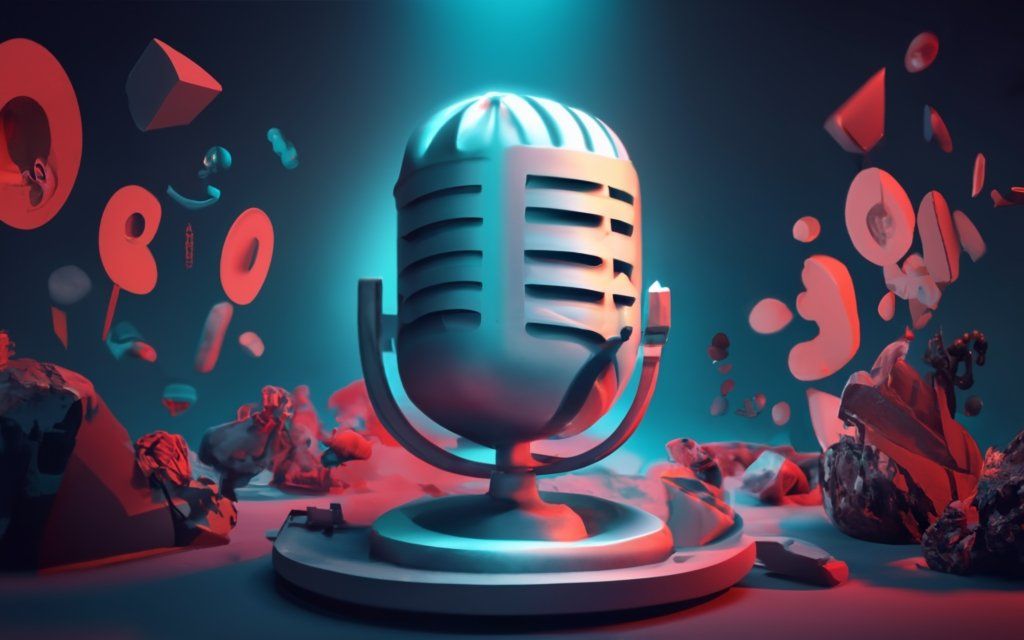
Dane: Welcome back to the Econ Dev Show. Today we're here with Joe Collins. Joe is the Economic Development Director for the Town of Norwood, Massachusetts, and the key accounts manager for the Norwood Municipal Light Department. Joe, welcome to the show.
Joe Collins: Thanks for having me, Dane.
Dane Carlson: Absolutely. So I guess that's kind of a mouthful. That title has two different parts. What exactly does that even mean? So you work for the city and you work for the Municipal Light company.
Joe Collins: Yeah, we have an electric utility and it's, uh, quite a few utilities. We'll have what's called a key accounts, um, representative or manager, and if I could sum that up, it's basically like doing BR&E specifically for a utility.
Dane: Sure.
Joe Collins: It couples really well with traditional economic development. So I'd be doing a lot of things that I already would be just maybe a little bit more of a focus on, um, the utility side and unofficially also help out if they have any questions about water and sewer. I can help out with that as well.
Dane: I'd imagine that makes it a lot easier when you have a project and it's looking for a specific amount of electricity or, or water or sewer. You're the guy to go to.
Joe: Yeah, definitely. We also, uh, we also have some rebates available if you're maybe changing out your lights or change your refrigeration system or an HVAC system, so, Um, I'm usually the first person to get contacted about that, so I get a chance to market it, so it makes it a lot easier to get my foot in the door with, uh, businesses in town.
Dane: Oh, that's awesome. That makes so much sense. You know, if you have a municipal utility company, why not have a member of the economic development team be a part of that? Because, you know, I don't know how many times we're waiting to hear back from, um, a utility company on, uh, specifications or timelines or what have you, and you being just that, being in both of those pieces at the same time, that just makes so much sense.
Joe: Yeah, it's been a really great opportunity just learning more about the electric utility side of. everything. Um, I thought I had a good understanding before I started my new about a year ago, and I have learned a ton and I know that I have a lot more to learn on that side of my job.
Dane: Well that's awesome. So how did you get into this? I saw you worked, uh, for some other cities before Norwood. Um, how did you get into economic development?
Joe: Well, I got my, I finished my Master's of Public Administration at East Tennessee State, and with the intent of trying to become a town or city manager someday, I. And in my first job in Ashton, Virginia, uh, another great community, um, was doing a lot, was a management analyst, did a lot of different things, including, um, was man, I was basically department head for the recreation department, uh, looking at some professional development opportunities and my boss recommended, why don't you take an economic development course? 'cause that's something that, you know, everyone values. . And from that point on, I was absolutely hooked. Uh, we ended up working there for a couple years, moved to Massachusetts, I think about five years ago. Worked for the town of North Attleboro, uh, started doing a little bit more economic development, and then came to Norwood four years ago and as a budget management analyst, and started doing more and more economic development, especially as the pandemic started. And then we created the position I'm in now about a year ago. This just does, uh, solely economic development for the general government side and also the utility.
Dane: Well, I didn't really want to have you on to talk about, um, you know, your, you know, your dual role. As interesting as that is the, the really exciting thing for me, I. And you don't know this, but you were the very first subscriber to the econ dev show newsletter. You were the very first person to put in your email address become the subscriber.
Joe: First one.
Dane: Yeah. I, I just, you know, I had, I had seen your name, you know, come up and I, and I. I had kind of remembered that, or, or knew you were very early, but, um, you know, it's kind of a common name, Joe. It's kind of a common name. So I thought, well, maybe I misremembered, but no, I went back in and I checked, and in fact you subscribed two days before my wife subscribed. And so that means I didn't even really tell her, you know, to subscribe for two days after you subscribed.
Joe: Oh, double let her listen to this episode then.
Dane: Ex. Exactly. I don't want her to know that, you know, she wasn't the first my, my greatest supporter. But the other thing that's really interesting is, you know, in those early days, um, you know, you, you start to get subscribers slowly, right? When you build a new a newsletter and you're getting a few people, um, but. It's very possible. I, I, I haven't actually checked, but it is very possible that there were newsletters that when I clicked send to the subscribers, that you were the only one that got it, you know, at least for a week or two maybe, which means literally I was writing this for you specifically.
Joe: I did not know that. That's, that's that crazy? Yeah. I just think like .
Dane: So, what, let, let's ask you, let's use you as like the quintessential, the like number one, you know, reader and, and listener. I guess, what is it that, that you like about the econ dev show and what is it that you, um, what do you, what do you don't like? Like this is your opportunity here. You could, uh, you know, Make it how you want it, so, so tell me what is it you like and what is it you don't like?
Joe: Definitely like the wide variety of guests. Um, definitely giving me a lot of ideas for future projects. What I don't like now you put me on the spot. I don't wanna try to be rude or anything. Um, I think for what we're expecting,
Dane: Good.
Dane: So you've gotten some ideas from some of the, from some of the guests. What kinds of ideas have you gotten?
Joe: I know one of your guests has, I believe they actually either worked for or was part owner of the company that uses, um, basically like a platform for gift cards for . Businesses and you know, like a downtown area.
Joe: Um, we actually did that when I was in Ashton, Virginia, but it was, uh, um, a little less formal. Um, usually some kind of platform. Like I'm definitely interested in doing that down the road.
Dane: Nice. I'm trying to remember who that was. I think it was, I can't remember, but I'll put it in the show notes. Um, yeah,
Joe: I really hope it was the I think it was another podcast, I'm thinking.
Dane: No, it was, I remember that there was a, it was like a European something. Yeah. That, that stands out for me. It's just, uh, what, so what other podcasts do you listen to?
Joe: Uh, The development, uh, I can't remember actually a second. Um, non-economic development. I listen to a lot of, um, planet Money Freakonomics. are probably my favorite. Uh, you obviously, uh, develop this.
Dane: Oh, develop this? Yeah. Frazee, he's, they've been at that for a long time.
Joe: Yes. The next move group. List them pretty frequently.
Dane: All good. Hey, I can see you're checking your, uh, your your podcast. Huh? How do you, so how do you listen? You car, you listen to work. What, what do you listen?
Joe: Typically, yeah, typically when I'm driving to work or driving home, uh, occasionally when I'm working, if I'm doing something that doesn't require a lot of, um, you know, thought maybe just like doing some data entry or something.
Dane: Yeah. do you listen at, uh, one time speed, or you listen faster?
Joe: usually a little bit faster. Um, I think I've actually heard you talk about that. You listen at like two or two and a half times the speed. I can't do two and a half. usually like one and a quarter, one and a half, two and a half.
Dane: That's, ah, it's so interesting. So then do you notice that, um, after you've been listening to a podcast and it's, you know, playing a little bit faster, do you notice that you speak faster?
Joe: No, I haven't. I think that might be I'm just kind of a pretty slow kind of guy. faster than I used to.
Dane: Yeah.
Joe: Yeah, I, I, if I do speak faster than I used to, it's probably for moving to New England. Does that make sense? I can see, yeah, that makes perfect sense.
Dane: Interesting. Wow. So, and, and what else are you, you know, what else sort of, you know, excites you, it doesn't even have to be economic development related, you know?
Joe: Uh, well, my wife and I just got a dog. Um, he's been keeping us extremely busy. Uh, he's a five month old golden doodle. Um, like to go on hikes. Uh, done a little bit of mountain bike. I haven't done that much since this summer. Um, I, growing up in Columbus, I'm a big Columbus crew in Columbus, blue Jackets fan.
Joe: Uh, so excited. I actually get to go to, gonna go to a couple games later this summer. Um, growing up in Columbus, I've always been a Ohio State football fan.
Dane: Yeah, that's good. Good football. Yep.
Joe: like that.
Dane: Yeah, exactly. How about coffee? You know, how much do you, uh, do you drink coffee? How much coffee do you drink? I.
Joe: Probably a little too much. Um, not at least a few cups a day.
Dane: Yeah, that's good.
Joe: cut back.
Dane: Why do you wanna cut back? That's an important question. People always say that and never understand why
Joe: I am not sure. I think mostly, so it actually will still make me a little too jittery. No, um, I think just, I, I'm not sure.
Dane: Okay. It's just one of those things people say, I think,
Joe: Try to work on being a little more hydrated more often.
Dane: Right, right, right. So where, what's the future hold for you? Where do you see yourself in, you know, in a decade?
Joe: I dunno about a decade, but I'm pretty happy in my current role. Uh, I think this is the first job within my career I've had where I could see myself doing this for a long time. Um, We have a ton of work going on. Norwood Norwood's a great place to work. Um, being the Boston veteran is a huge plus. Makes my job a lot easier too. Marketing the, the town, um, have a highly coveted workforce. Um, infrastructure's incredible. Yeah, it's a really great place to, it's a really great place to be an economic developer.
Dane: That's good. That's awesome. What, so what's it, what is the population of Norwood and you know, where it's in the Boston Metro, but where is it? Roughly, and you know, tell us a little bit about it.
Joe: For the 2020 census, uh, we're 31 and a half thousand people. We are like, depending on where you're looking at, in Bo to the Boston City. Boston the line, uh, we're about 14 miles southwest of the city. so we're just south of Westwood in Dedham, we have three. Uh, so the, we have pretty good public transportation service. We have three commuter rail stops, which for, that's what we refer to as basically our heavy rail, um, transportation line in the, the overall system in the Boston area. Great Highway Access 95 and Route One. Both traveled through Norwood. Actually kind of strange, um, I've worked for Asheville, Virginia, north, Attleboro, Massachusetts, and Norwood in all three of those towns. 95 and Route One traveled through.
Dane: That's what your draw is, that's where, that's where you're attracted to, I guess.
Joe: Yeah. I guess so.
Dane: Wow. And so what are the, um, you know, is it a Is it a residential community? Is it, um, you know, what are the, is everybody commute to Boston to work? What are the industries or the jobs there?
Joe: We actually we're one of the, we're quite unusual forest a suburb 'cause we actually grow during the day. Um, Looking at the census data, we grow about by about 5,000 people during the day. Um, we are, and have always been for least since, I least since we've existed since the late 19th century, um, been a regional hub and have been, you know, open to growing our industrial base.
Um, typically whatever the top industry was at the time. So we've had quite a, we had quite a few tanneries, uh, working with leather and. Ammo products we've had, we still actually have one plant that develops, uh, roof shingles. So if you've ever bought certainty of roof shingles with as far south as DC West Buffalo and North and Maine, they probably came from Norwood.
Um, that still used to do a lot more, but we're still making shingles now. The shift has really gone towards biotech. So we have, uh, the biggest, most prominent companies, definitely Moderna. They expanded to Norwood in 2016 and then, um, expanded again in 2019. And then obviously since the pandemic started, they grow, they grew significantly.
Uh, they're now our top employer. we have a hospital in town. They were previous our, they were previously our top employers of 2020. They face a serious flood and have been shut down, but they're early rebuilding right now. Um, So that actually that medical center's also been a regional, it's also a regional hub for all the suburbs Southwest of Boston.
Dane: Interesting. Um, is it, uh, is it a wealthy Suburb, you know, is the standard of living pretty high household income or is it,
Joe: Yeah. I mean, I guess it. It depends on who you're comparing us to.
Um, we still have, um, you know, a sizable chunk of our population that was still considered working class. Um, the salaries would definitely look quite a lot higher than the rest of the country, just 'cause the, the cost of living's a little bit higher here.
Dane: right?
Joe: but home values are starting to go up and, um, We've seen a little bit of a progression of going towards, you know, hire a nurse. But, um, compared to a lot of our surrounding communities, we still have a lot of, uh, we call blue collar, uh, blue collar workers and, uh, members of working class.
Dane: Are you seeing a, um, you know, Massachusetts other than for say, maybe biotech in, in Boston? It, um, It doesn't seem like a hotbed of just innovation, activity, development, all that kind of stuff, at least looking at it from the outside. Um, what would you say, you know, is the counterpoint to that? How you, you described the Moderna, you know, moving there and becoming your top employer, but you know, what else is kind of happening in that region that is maybe we're not paying attention to?
Joe: Oh, definitely. Anything and everything with robotics. I don't know . If we have many companies, I would consider, you know, robotics r and d in Norwood. But there are, if you're in that industry, you probably are in eastern Massachusetts, somewhere around the Boston area.
Advanced manufacturing. If you look at our location portions and the Boston Metro, we're well above one in terms of quite a few areas of manufacturing, um, particular areas that require high level of expertise.
Um, Leading up from the, if you look at the census state of 2010 to 2020, um, Massachusetts and the Boston area is actually one of the few states. It might have been the only state in the northeast region that was, that continuously grew. We seen a small dip the last couple years once the pandemic started.
Um, obviously we're hoping that's just a blip.
Joe: But in terms of, innovation, I would say that, you know, being the home of M I T and other technical schools that might not have their credentials, um, If there's an idea that's being thought of right now, um, it's probably coming out of there.
Dane: Right. That, yeah, that's a, a tremendous asset to have. I can't, uh, I think everybody's probably jealous of that looking,
Joe: Yeah. It's a nice de I definitely try to market that every opportunity I have.
Dane: right? I would, it would be the, yeah, it would be top, you know, that would just be the, the thing. So, um, let's see. We asked you in the pre-interview if there was a tool or something that you, um, you know, use or something that you Rely upon, and you mentioned apollo.io and I thought that was a very interesting one.
Dane: So why don't you tell us what that is and how you're using it.
Joe: It's a, it's a platform that basically aggregates contact information for anyone and everyone. I think it primarily scrapes information off LinkedIn. Um, so it's been interesting to me, but since I've, especially since I started my new role, it's, I found it very difficult to find contact information for certain businesses.
In town if I wanna set up like a B B R and e meeting. And that platform's been very helpful. Um, it's not, it's not a hundred percent effective, but I've been able to collect contact information for a lot of people. It's helped me set up b r e visits with several companies in my first year.
Dane: That's interesting. I had never thought about using it, something like that, in that, in that way, but I'd imagine that, yeah. Especially being in a, in a Community, like, um, a high tech kind of place. It seems like it's really hard to find anyone's.contact information, you know? Um, so yeah, I hadn't thought of that. That's interesting. Do you have a, um, do you have a paid subscription to that?
Joe: I just have the free version. Um, it hasn't gotten to the point where I would need to to pay for it yet, but even the free version has been perfectly adequate for what I'm using it for.
Dane: It's so amazing that you, uh, had this listed because I was just looking at ZoomInfo and it's very similar. And if you, you know, Google apollo.io versus ZoomInfo, you can see lots of comparisons. And ZoomInfo is, was subs, you know, really really expensive. Um, and.
Joe: Oh.
Dane: Apollo io, it seems like it has all this great stuff and it's, you can basically use the free plan and it's not really a hassle.
Joe: I have to check that out too.
Dane: Yeah, I think it is about, it was about, I think they quoted me originally, I think it was about $24,000 a year. But, uh, it's the same kind of thing.
ZoomInfo has been around for a long time and basically it started that if you give me your email address and phone number, we'll give you, you, know, other email addresses and phone numbers and so, yeah. Huh, interesting. Any other tools like that, that you rely on or that you use occasionally even?
Joe: Um, not like that. LinkedIn's been helpful of, you know, collecting contact information or finding individuals at companies I'd like to talk to. Um, we just implemented a C R M system, um, which has been great. Um, just about a month end, so it's still a lot of work to do on it. We're using Executive Pulse, um, and I'm not, I don't believe we haven't really set up correctly yet, but we're gonna be using it with, um, one of my coworkers at the, at our electric utility as they constantly have projects upgrading, um, electrical infrastructure.
So it should be helpful for them too, and we can show, we can share information with one another. Um, I've also started using location one to market sites and buildings in Norwood.
Dane: Mm-hmm.
Joe: Uh, that's been great so far. Really easy to plug everything in and share it on LinkedIn or share it on a newsletter. Okay.
Dane: That's good. And how often do you send out a newsletter?
Joe: Once a month and I actually need to send out my August newsletter. Um, I'm already two days behind, so I'm need to get that out today.
Dane: Yeah. And what kinds of things do you put in there? Like what, you know, what, do you have a, a format or a formula for figuring out what to put in, or, or is it, you're just sort of like pulling outta there?
Joe: I use any trainings that I come across, um, from the S B A score, um, Massachusetts Small Business Development Center, um, other agencies like that, uh, mass, m e p, which is a. I think they're quasi state. No, they're just like an association for man Massachusetts manufacturers. Um, if I see something from Mass Econ, which is like a, it's like a non-profit e d o for the state, um,
I include all of the building sites available. If there's a ribbon cutting or a construction project complete, I'll try to include a photo, maybe a community event that might be applicable to some newer businesses, things like that.
Dane: Nice. Nice. Nice. And then do you work with the, uh, or interface much with like the Chamber of commerce or, you know, any of that kind of thing
in the, in the community? Yeah.
Joe: Yeah. Um, so we have a, the NAP deposit River Regional Chamber. Um, they're a chamber for four or five towns in our region. Um, their executive director's name is TAB work. We probably talked with one another. At least every, probably a couple times a month at least. Um, we have a standing meeting with, with him, um, our town planner, um, which for the rest of the world is just the director of community development.
And then we also have, uh, our downtown association, which is like a Main Street Association, refer to them as, uh, friends of Norwood Center. So we get together once a month to see what's going on and yeah, learn quite a bit in those meetings.
Dane: I'd imagine. Yeah. Oh, that's good. Fascinating. Well, anything else you wanna share that, uh, um, I didn't touch on,
Joe: I think I got everything I wanted to mentioned. Um, but yeah, thanks again for doing this. Um, try to read as many of the newsletters as I can. Um, Completely from your data. I am reading a lot of them. Um, I use, I also, for our economic development, uh, committee, I, I put together a bunch of relevant articles. So I actually end up pulling quite a few from, from your newsletters and shared 'em with them.
Dane: Oh, that's excellent.
Joe: they seem to enjoy them. I don't know how much sometimes those, those can get pretty long. But yeah, I'm still in awe that you're providing them. top of everything else, but
Dane: Yeah. Yeah. Well, fantastic. Well, Joe, this has been great. If any of our listeners wanna reach out to you, what would be the best way for them to contact you?
Joe: uh, probably my LinkedIn page and I'll give you my email address as well.
Dane: Yeah. Perfect. Excellent. Well, Joe, thank you so much. I really appreciate it. I hope you continue, um, you know, with that high open rate. And, um, you know, again, thank you so much for being my first reader. Uh, it's, it's a real It's a, it's a real honor, I guess, to have had you instill that faith and that trust and that time that has gone into your, uh, reading and listening and all that. So thank you so much.
Joe: Well, thanks for having me, Dan. I really appreciate it.
Dane: Yeah, if you're going to the IEDC conference this year, I'll be there. So let's definitely meet up and grab a coffee or something if you're gonna be there.
Joe: That sounds great. I'm still waiting to hear back if I'll be able to attend, but I'm hoping to make it work, so that'd be awesome to meet you in person finally.
Dane: Yeah, absolutely. Well hey, thanks again, and we'll talk to you soon.
Joe: Thanks, take care.
Dane: Bye!
That concludes today's episode of the Econ Dev Show. I want to thank Joe for joining me and for being the very first subscriber to this newsletter. It's listeners like Joe that make this show possible.
If you enjoyed this episode, please subscribe on your favorite podcast platform and leave us a review. It really helps new listeners find the show.
Until next time, this is Dane Carlson signing off. Stay tuned for our next episode coming soon. Thanks for listening!
Econ Dev Show Newsletter
Join the newsletter to receive the latest updates in your inbox.
